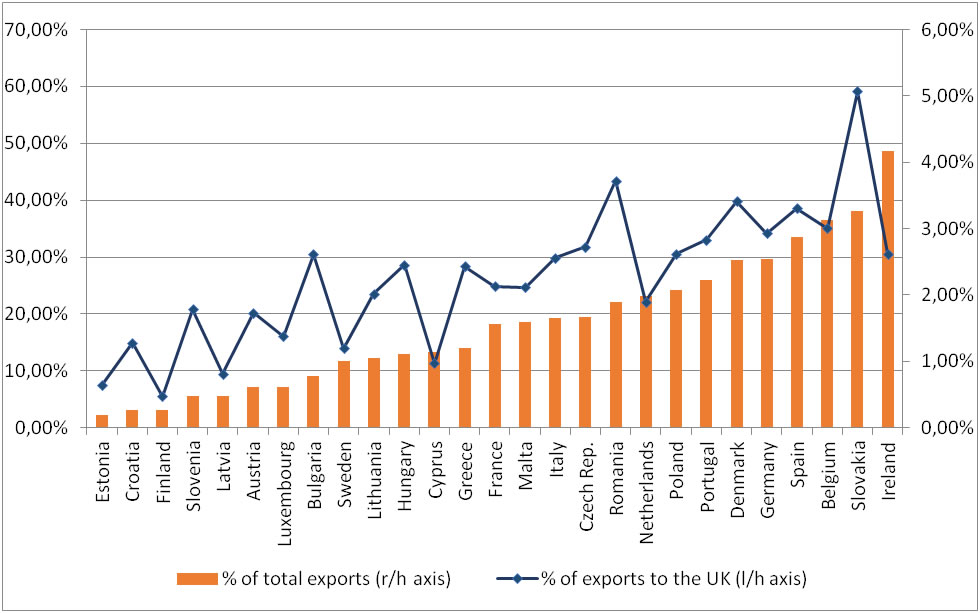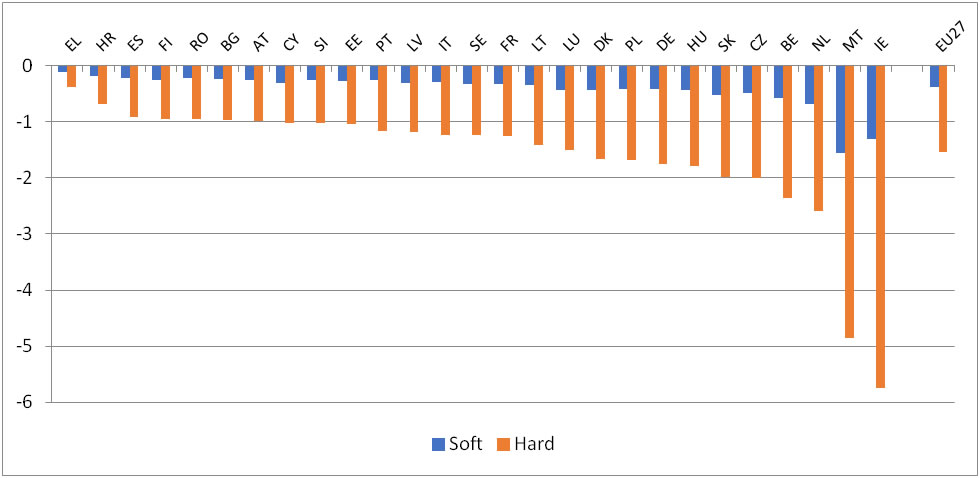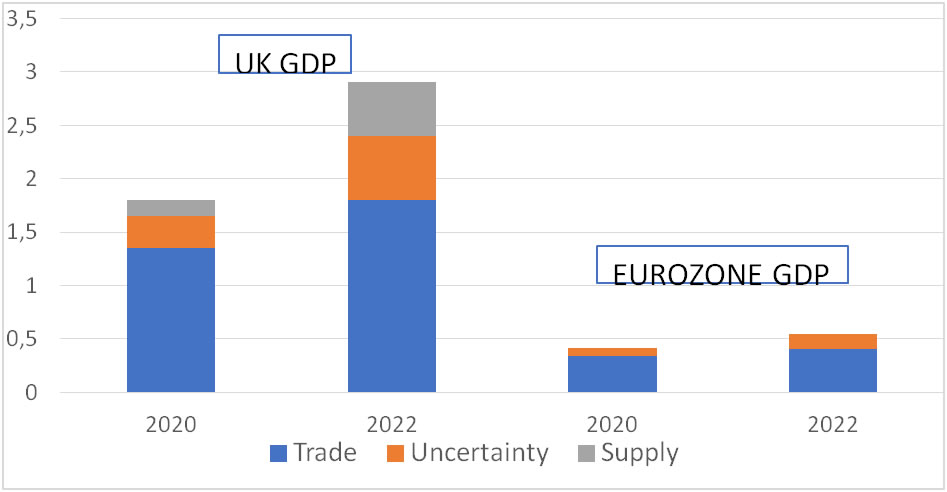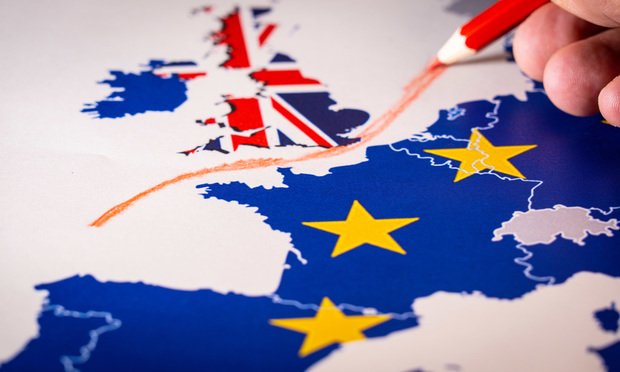After Brexit that has been expecting for the second year in the European Union, there will be major changes in the functioning of common trade, movement of people, goods and services. Will employers make profit from Brexit? What are the disadvantages and positives of Britain´ s leave from the European Union?
Leaving of UK from the European Union(EU) without an agreement, a hard brexit , would according to a recent study , hit the labor market the most in Malta, Ireland, Belgium and Slovakia. These countries have an intensive exchange of goods and services with Britain. The UK imports approximately 38 % of food, while the EU has large part of food product imports. However, this openness will end soon.
Britain´s withdrawal from the EU will have the greatest impact on agriculture
According to a study by the Belgian Catholic university of Leuven, it has been shown that a possible withdrawal of the UK from the EU would have fatal consequences fot he economy of Europe as a whole. Up to 1.2 milion people currently working there may lose their jobs because of Brexit. As European market is so strongly connected, Brexit will affect us all. Hard Brexit would affect different sectors in different countries. For example in Brazil and Bulgaria agriculture would suffer the most, in Czech Republic and Germany automotive industry would be the most affected, in Belgium and Austria it would affect retail and wholesale.

“In today´s globalized world, it can be assumed that if there is a shortage of certain goods, market space would in most cases be filled very quickly by offers from competition, whether from EU Member States or preferential imports.”
– A spokesman for the Ministry of Economy
The European joint market is based on the principle of free movement of goods, persons, services and capital. This agreement will cease to apply when Britain leaves the EU. By leaving, it will trigger a chain that is likely to be dragged for years and will gradually affect us all. Even though, Brexit will affect the labor market and the British themselves. Acording to the Belgium study, more than half a milion could lose their jobs. Of course, this will also have a significant impact on other European countries. About 291,000 Germans, 141,000 French, 139,000 Itialians and 122,000 Poles could lose their jobs. Britainś departure from the EU will cause several problems.
More than 1.2 milion people will lose a job
Many analysts in Britain predict that unemployment in Britain, which is currently around 5 % , the lowest in about 10 years, will rise after leaving the EU. The economic slowdown will also negatively affect wages. The British National Institute for Economic and Social Research predicted that real wages would be 2.2 to 7 % lower after leaving the EU by 2030 than if Britain remained in the bloc. On the other hand Brexit supporters argued that the labor market would be more dynamic after leaving Union without being hampered by European regulations.

The referendum was also affected by the migration crisis that occured in 2016.Germany wanted to solve quotas and the migration crisis issue through the EU-Turkey Action Plan. This would mean the voluntary reception of migrants from Turkey. Issue of Britain´s departure from Eu has also become a problem, as statistics show that the United Kingdom receives more migrants per year than any other Eu Member State (including Germany). Even before the official referendum was announced , foreign banks and branches in London began to calculate their transfer to another European metropolis.
“Currently, foreign workers are an important part of the UK economy, the labor market is hungry for new force. Unless there is a catastrophic recession, there will be little interest in making existing employees any problems, no matter what scenario!”
– Analyst of the Institute of Economic and Social Analysis
In the case of hard Brexit, the UK would lose more than 1.2. milion employees across the European Union. This would be huge shock to the British economy, which could have fatal consequences.
Britain as a „third country“
In the future, Britain may also operate under a „third country“ regime under WTO(world Trade Organization) rules. This means that it would determine the rules of migration policy itself. In this case , there would be maybe some kind of scoring system like in Australia and foreign workers will be recruited by skill. The most likely alternative is that people from EU will be able to continue working in the UK without any major problems, but they will not receive for example social benefits. It is believed that dislike to migrants in this country was rather a reluctance to pay these benefits. On the other hand, there are still professions that British people are not willing to do and they will still need a foreign workforce.

“Brexit creates uncertainty for investors and affects economic growth by postponing or even moving geographically decisions about investment and development. The impact of Brexit is clearl negative for Europe and its economic growth.”
– Member of the Board of Directors and Head of Investment of DSS Poštova Banka
The departure of the United Kingdom from the European Union seems to be inevitable. It will be our task to take full advantage of this opportunity and try to maximize the positive effect on the economy. At the same time, it will be necessary to minimize the negative consequences of the UK´s departure from European Community. British companies will be forced to rellocate their production and location to remain competitive. This way, British conpanies will have an eminent interest in establishing branches in Europe. After leaving Union, the migration agreements will remain unchanged and there will be no increasse in regulatory flexibility within the UK.







